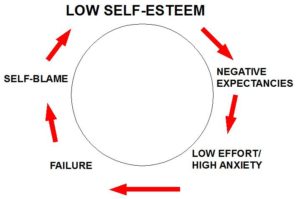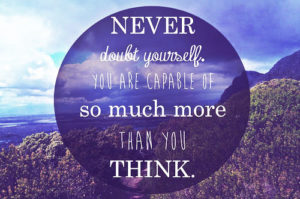Self-esteem
You can’t touch it, but it affects how you feel. You can’t see it, but it might be there when you look at yourself in the mirror. You can’t hear it, but it’s there when you talk about yourself or when you think about yourself. What is this important but mysterious thing? It’s your self-esteem.
What Is Self-Esteem?
It reflects a person’s overall emotional evaluation of his or her own worth. It is a judgment of oneself as well as an attitude toward the self. How you feel about yourself and how much you enjoy things or worry about things. It is an opinion, not a fact but the way we view and feel about ourselves has a profound effect on our lives.
Self-esteem is about getting to know what you are good at and not so good at. A lot of us think about how much we like other people or things, but don’t really think much about whether we like ourselves. It’s not about thinking you’re perfect, because nobody is perfect. Even if you think some other people are good at everything, you can be sure they have things they’re good at and things that are difficult for them.
Self-esteem can change over time and between situations. Maintaining a healthy sense of self-esteem is something many people struggle with. It can be especially hard for students, because they are surrounded by different kinds of students who are smart or artistic or athletically gifted or beautiful or whose lives seem like they are so easy.
College students can have unrealistic expectations of their peers such as; they think other students are always happy, always good in studies, always popular, never struggling. This of course is not the case; we all have problems and struggles as well as successes. But if students measure themselves against an unrealistic perception of other people, it can cause them to feel bad about themselves.

That Negative Voice in Our Heads
The voice in your head never stops. “You should work harder”, “You will never be perfect”, “You need to do something about those wrinkles; your hair is a mess”. These are your inner critics and as a result of these, you will suffer with low self-esteem.
How low self-esteem develops?
It is not unusual to have a negative reaction in a specific situation where, for example, you may only hold negative views about how you coping at work. However, when our negative self opinions are always with us, they start to be judged as a fact and that can impact on our lives. Eg: “I’m not good enough” or “I always say stupid things”, these sayings about you in all situations may indicate low self-esteem.
CAUSES OF LOW SELF-ESTEEM

The main cause of low self-esteem is negative self-criticism. It can be due to destructive thoughts such as believing you are weak, unworthy of good things or not smart enough to be successful, hurtful thoughts that when you don’t feel worthy of love or respect you will begin to feel unworthy of success in any area of your life and unreasonable expectations such as feeling you should be able to cope up with a situation even though you have never had the opportunity to acquire the skills required, can further compound feelings of worthlessness or fear.
Rejection or loss is another important cause. It can be due to various reasons such as parents separating, boyfriend or girlfriend being unfaithful, being ostracized by friends, dealing with unsuccessful applications and coping with a death. Combining self-esteem too closely with academic achievement can create a great deal of pressure on an individual. The talent and competitive environment at school, university can easily increase self-doubt and insecurity. You may even feel that other people overestimate your ability and this burden of expectation can lead to a sense of failure and impossibility.
How can having low self-esteem impact upon you?
- Ignoring your strengths and abilities
- Saying negative things about you
- Focusing more on mistakes and ignoring the positive abilities
- Focus on trying prove themselves or others
- Telling yourself that you do not deserve to have pleasure or fun
- Avoid challenges or situations where you feel you could be judged by others
- Become shy and withdrawn to avoid threatening situations.
- Become aggressive when you feel embarrassed by difficulties.
- Making you expect the worst and contribute to feelings of sadness, anxiety or anger
- Interfere with your personal relationships and make communication difficult
- Afraid to try things due to the fear of failing or, intentionally do poorly even on things you can do well, so that others won’t expect too much from you.
All of these behaviors are normal attempts to hide your difficulties and improve your low self-esteem. Unfortunately, these behaviors only make things worse. It is important to remember that you are not alone in having these experiences as low self-esteem is a common experience for many people.
BOOSTING YOUR SELF-ESTEEM

It is OK to have ups and downs in your feelings, but having low self-esteem is not OK. Turning a negative critical voice into positive is a matter of looking at your criticism more objectively. It means developing the ability to see yourself with compassion in order to gain a broader understanding of your own potential.
Make a list of the things you are good at. It can be anything from dancing or singing to playing a sport or telling a good joke. Then add a few things to the list that you’d like to be good at. Low self-esteem can make it difficult to identify strong points but it does not mean you do not have them. It’s only that they are unfamiliar to you.
It is important to remember that there are things about yourself you cannot change. You should accept and love these things such as skin color, body shapes as they are part of you. Remember that your body is your own, no matter what shape, size, or color it is. If you are worried about your weight or size, you can check with your doctor to make sure you’re healthy. Remind yourself of things about your body that are good, like, “My legs are strong and I can skate well.”
Give yourself three compliments every day. Don’t just say, “I’m so great.” Be specific about something good about yourself, like, “I was a good friend to her today” or “I did better on that test than I thought I would.” Before you go to bed every night, list three things in your day that really made you happy or that you feel thankful for. Whenever you hear negative comments in your head, tell yourself to stop. Remind yourself of things you are good at and if you can’t think of anything, ask someone else. You can also learn a new skill, so you can feel good about that. It is necessary to reward yourself. Give yourself a day off from work, buy yourself a little treat and do something you particularly enjoy but rarely get chance to. Reward yourself for your achievements, share positives with others around you and most importantly, help others to see themselves as capable and worthwhile too.
Being compassionate boost our self-esteem. We do not like other people saying bad things about us, so there is no reason to say them to you. Acknowledge our mistakes are part of learning. Put the experience into perspective and identify the ways to solve problems differently. Part of growing up is learning to focus on your strengths and to accept and work on your weaknesses. Forgive yourself when you don’t do all you’d hoped. Try to be gentle with yourself rather than critical of yourself when things don’t go as you had hoped. This can be surprisingly hard if you are not used to it, but recognizing that such experiences are inevitably helpful.
Try not to expect more of yourself than you do of others. If you accept the mistakes and variability of other people, try and use that same understanding and compassion towards you. Being ‘good enough’ is a great goal to aim for. Learning something new is always good. Maybe there is something you have always wanted to try. Challenge yourself by setting achievable targets for a new task or skill and then build upon this success.
Looking after you physically is also part of developing self-esteem. Eat regularly, eat healthily, sleep well and look after your wellbeing. Exercise can give confidence and help you to feel good about your body. Think about the ways you enjoy yourself. Arrange to be in situations which are playful and make you laugh. Avoid as much as possible situations and people make you feeling bad about yourself. Ask for support, feedback and affection. Be prepared to say you do not know, but do not pretend or hide. Do not assume you are unimportant and do not just wait for other people to come to you. Be nice to others, be volunteer, be helpful, pay compliments to others, be involved and it is more likely that others will want to be involved with you.

|
We have all been there. When you spot a successful and beautiful person walking with their head held high, rather than feeling good about yourself and your accomplishments in life, the voice sets in “why can’t I look like that” or “how come I never have any luck?” and so it begins…. the vicious cycle of negative thoughts leading to poor self-esteem. Has it ever occurred to you? Do you often find yourself feeling jealous or insecure around certain people, perhaps even random strangers who appear to have it all?
This brief article is designed to encourage you to start living your life, focusing on your goals and not anyone else. Only you know what is holding you back from “having it all.” Only you can make the necessary changes, but first you need an action plan.
You need to be engaged into your own life and build your own self up. No one will do it for you. You know where you have been and where you want to go. There is nothing wrong with asking for some help or guidance to get there but the responsibility is yours.
Start with the small things. Start complimenting yourself and when others compliment you simply reply with thank you. Too often, people find excuses not to accept compliments or to take pride in their work. Why? It is acceptable to feel proud about yourself. It is good for you and ultimately, for those around you that you like who you are. No more body comparisons, no more self-guilt because you do not possess the body or career of your dreams. Take action and make it happen. You are worthy of healthy self-esteem. There is only one you. Why wait?
The only regret you may have is that you did not start sooner on your journey to a healthy you. Always, remember its better late than never. Your self-esteem needs to be able to endure the critics in life. For some people that may be family, co-workers, employers, neighbours, etc. the list goes on and on. You should endure because it is bound to happen. Someone is going to criticize you in some way. Being able to endure another person’s opinion of you is simply accepting that it is their perspective and not your own. In order to feel good about yourself, you need to honestly believe that you are enough just the way you are.
Create a list of the many desires you have and tackle them one day at a time. It will not be an easy process; that I can promise. You will have days that are more difficult than others. That is for sure. Do not give up. Persevere. Build on what you have right now.
Feeling good about you will definitely lead to healthier choices in all aspects of life. Feeling good about yourself will allow you to try new things and to step outside of your comfort zone. Do it, what are you waiting for?

Inspire yourself to put the past where it belongs; behind you. Take time to put yourself first and reap the benefits of building positive and healthy self-esteem.
Written By:
Rosanthy Skandhakumar
IMAGES REFERENCE
[2] http://thinktranquility.com/overcoming-low-self-esteem
[3] http://nfebles88.empowernetwork.com/blog/putting-a-halt-to-low-self-esteem
[4] https://www.linkedin.com/pulse/development-cycle-low-self-esteem-heather-hancock
[6] http://ggmn.tv/2015/03/fearless-friday-never-doubt/
[7] https://www.linkedin.com/pulse/20141118141032-14803513-there-s-no-such-word-as-can-t


